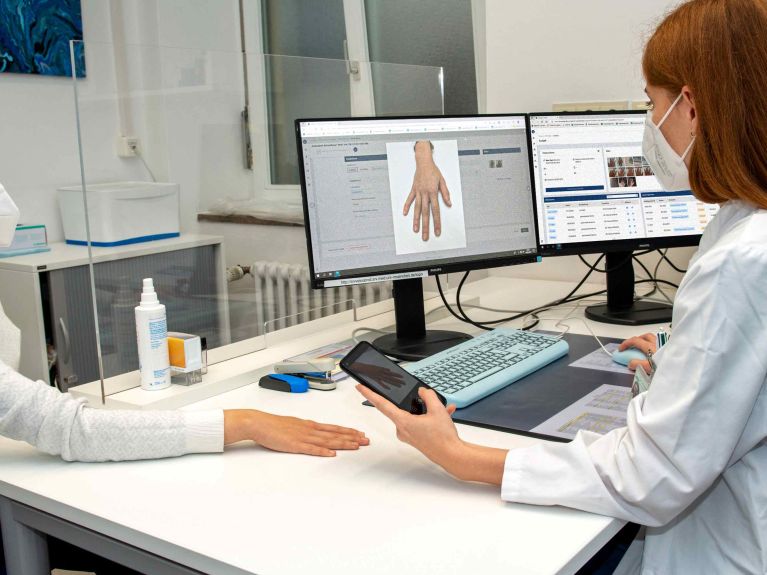Digital treatment opportunities
Treatment, therapy, surgery: Innovation drivers are using cutting-edge technology to transform the healthcare system. A glance at three German start-ups.

Avelios Medical: Data for research and patients
Digital data are a precious commodity in the healthcare sector, too. Munich-based start-up Avelios Medical collects data to help hospitals improve their treatment and researchers to achieve new findings. The company’s software forms the basis for fully digitised documentation of patient care - what is more, it considerably accelerates the speed at which this care is delivered thanks for example to an automatically created hospital discharge note. With the data it generates, the software also contributes to the success of ongoing research projects. The images and meta information gathered by Avelios Medical is currently being used for instance to teach an algorithm at the hospital of Ludwig-Maximilians-Universität (LMU) München to recognise skin diseases.

Cureosity: Gamification in therapy
Immersing yourself in virtual worlds – while doing something for your health at the same time: All kinds of people can benefit from the numerous games created by Düsseldorf start-up Cureosity, such as patients suffering from paralysis after a stroke or neurodegenerative disorders like Parkinson’s, or indeed people wishing to regain their mobility following surgery. There are no limits to your imagination when you’re wearing a VR headset: Users can allow themselves to be transported into virtual space for example and use their bodies to deflect meteorites. With its innovative software, Cureosity also relieves the burden on therapists, providing them among other things with training plans.
Dieses YouTube-Video kann in einem neuen Tab abgespielt werden
YouTube öffnenThird party content
We use YouTube to embed content that may collect data about your activity. Please review the details and accept the service to see this content.
Open consent formCuresyntax: Well-informed surgeons
Decisions in the operating theatre have to be weighed up carefully and in many cases taken quickly. Caresyntax, a Berlin-based start-up with three US branches in Boston, Milwaukee and San Francisco, offers software-pooled swarm intelligence. With the help of AI, the company launched by Björn von Siemens, great-grandson of the inventor and industrialist Werner von Siemens, has already analysed around 10 million surgical operations. The data and findings it has acquired in the process help for example with preparing operations: with putting together a suitable surgical team, predicting difficult situations and warning against risks. As such, the service offered by Curesyntax provides peace of mind during each of the steps – and has been likened to the reassuring feeling of having an on-board computer when flying an aircraft.
Dieses YouTube-Video kann in einem neuen Tab abgespielt werden
YouTube öffnenThird party content
We use YouTube to embed content that may collect data about your activity. Please review the details and accept the service to see this content.
Open consent form



